Lit Fest features intensive workshops for experienced writers of novels, poetry, short stories, memoir, essays, narrative nonfiction, hybrid genres, and screenwriting.
The priority deadline was March 9. You should hear the status of your application by early April.
After March 9, interested writers can apply for a possible waitlisted spot or late opening here. Should spots open up, we'll accept qualified applicants on a rolling basis, beginning in mid-April.
Emerging Writer Fellowships closed on March 9 and will be selected by our esteemed panel of authors in each genre.
Wondering about the cost? Visit our tuition and fellowships page.
Still have questions? Check out our FAQs or send us an email at [email protected].
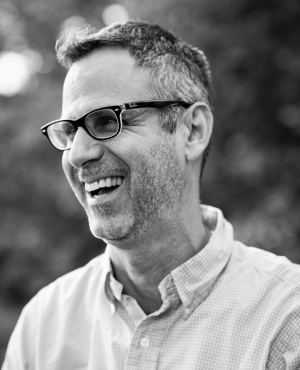
Advanced Weeklong Fiction Workshop: The BS Detector with Steve Almond
June 10–14, 9:00 to 11:30 AM MDT
Writing is decision making, nothing more and nothing less. What word? Where to place the comma? How to shape the paragraph? Join Steve Almond for a workshop focused on improving the decisions you make in your writing. By looking critically and carefully at other people’s work, you’ll walk away with a better sense of how to improve your own. The idea is not to slow your rate of composition via compulsive revision, but to instead make better decisions in the first place and to recognize quickly when you haven’t. Accepted participants will submit short pieces of up to 15 pages by May 13, and will have the opportunity to meet one-on-one with Steve during the week of class.
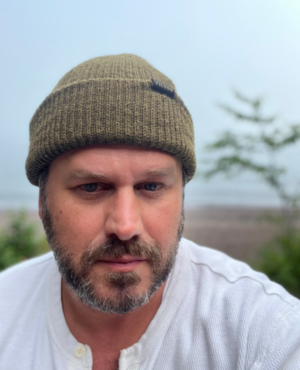
Weeklong Screenwriting Seminar: Write the TV Pilot, Screenplay, or Adaptation with Dean Bakopoulos*
June 10–14, 1:30 to 3:30 PM MDT
In this seminar, we’ll explore the craft of dramatic writing, specifically crafting your first original television pilot—an essential “calling card” for breaking into the industry. We'll discuss character arcs, narrative structure, dramatic escalation, conflict, and the construction of compelling scenes. We'll look for ways to preserve our literary voice and unique identity in a form often (mistakenly) considered formulaic. We’ll watch clips from some successful pilot episodes as illustrations whenever possible, and some outside viewing may be suggested (particularly the pilot episodes of Atlanta, Reservation Dogs, Insecure, Severance, The Curse, and Breaking Bad.) We’ll also talk about the art of adaptation—turning one of your own stories/novels (or somebody else’s) into a pilot script. Finally, we'll end with one generative exercise each session, designed to get you started on the first ten pages of your script and rough outline by the end of the week. While the course is geared towards creative writers interested in trying to write their first script, the principles taught in this class can easily apply to any narrative work—stories, novels, memoirs, essays, plays, etc.
*Dean's weeklong seminar will available first-come, first-served to experienced fiction/nonfiction writers and screenwriters when Lit Fest goes live on April 4.
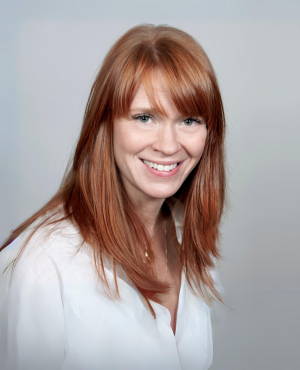
Advanced Weeklong Nonfiction Workshop: Mapping the Memoir with Emily Rapp Black
June 10–14, 9:00 to 11:30 AM MDT
Art is architecture; art is artificial; art is...? The biggest challenge for any writer of narrative is finding the map from beginning to end. This workshop is designed for writers working on a book-length memoir and wish to delve more deeply into issues of structure, style, and voice: these three craft points will be our focus, as these make up the net that holds a narrative together in a propulsive, engaging, immersive, and beautiful way. The goal of this workshop is to take your completed manuscript to the next level. We'll also discuss different avenues of publication. Accepted participants will submit up to 15 pages by May 13, and will have the opportunity to meet one-on-one with Emily during the week of class.
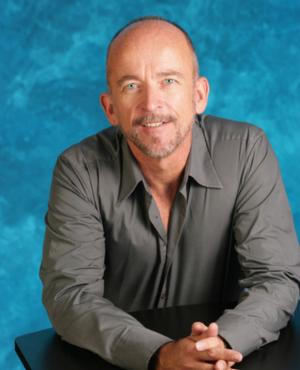
Advanced Weeklong Poetry Workshop: Raising the Stakes with Mark Doty
June 10–14, 9:00 to 11:30 AM MDT
Do you ever look at a poem you’ve written and sense that so much—the elusive but essential core of what you felt but couldn’t say—has been left out? This workshop is designed for experienced poets who would like to deepen, complicate, and enlarge their poems. We’ll read exemplary contemporary poems, engage in in- and out-of-class writing exercises, and cheer each other on in our quest to get more of the gorgeous mess of life onto the page. You will need a notebook or laptop, a willingness to experiment, and a degree of courage, which the group will help you find if need be. Each participant will submit up to four poems for review by May 13. Although all four poems may not be workshopped in class, there will be an opportunity to discuss them all in-depth during individual meetings with Mark to be scheduled the week of class.
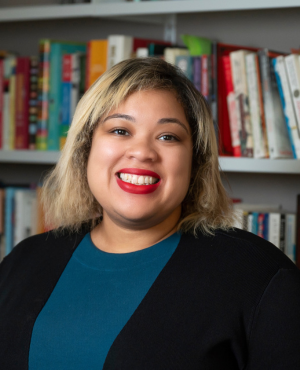
Advanced Weeklong Fiction Workshop: Finding the Subterranean Story with Danielle Evans
June 10–14, 9:00 to 11:30 AM MDT
Often the process of drafting fiction is a process of uncovering what it is we actually mean to be writing about and bringing that thread to the surface in revision. At the same time, one of the great pleasures of reading is noting what suggestions or questions remain just beneath the text or come to the surface as surprise or revelation. In this workshop, we'll consider the “layers” of a story and the way that being attuned to what’s just underneath the obvious story can guide us toward structures and narrative arcs that serve the project. We'll negotiate the balance between what works best when illuminated and said directly and what works best when left to be discovered by the reader. Each workshop will open with a discussion of a published short story and a brief responsive writing exercise, then move to an in-depth discussion of work submitted by participants. Accepted participants will submit up to 15 manuscript pages by May 13, and will have the opportunity to meet one-on-one with Danielle during the week of class.
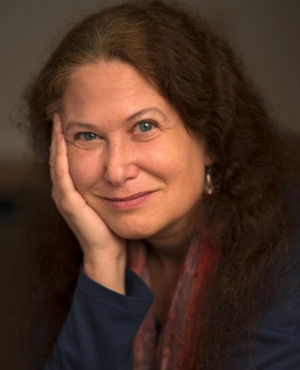
Advanced Weekend Poetry Intensive with Jane Hirshfield
June 8–9, 8:30 AM to 12:00 PM MDT
Poetry is pinnacle language that is not its own end. The most powerful poems are charged with thrilling words, but also with the work words do in our lives, the connections they make with realities beyond the page. Good poems will leave a person, whether writer or reader, changed. This weekend intensive will be primarily generative, engaged in making new poems in what may at times be new ways. The intention will be to offer participants an expanded repertory of process, freedom, and direction in the lifelong conversation with events, emotions, perplexities both interior and outer, that poetry allows us to enter in its own distinctive and entirely sui generis ways.
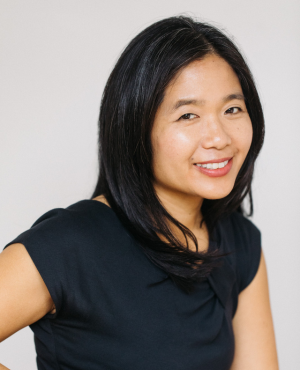
Advanced Weekend Fiction Intensive: Open Sesame—Crafting Compelling Openings with Vanessa Hua
June 8–9, 8:30 AM to 12:00 PM MDT
The first ten pages of a book are an incantation, not only beguiling your readers but setting the spell that will carry your narrative through to the end. In this hands-on workshop, you’ll learn strategies to kick off an urgent central conflict, introduce captivating characters, and establish voice, tone, and setting. We’ll analyze successful beginnings and work on fun writing exercises designed to hone those elements. You’ll also workshop the first ten pages of your work-in progress, receiving supportive and constructive feedback. Suitable for all levels, whether you’re just starting your project or have already finished a draft. Students will leave with a clearer sense of theme and direction for their work, and the inspiration and tools necessary for revision. Accepted participants will submit up to 10 manuscript pages by May 10.
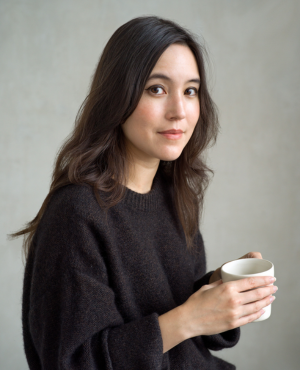
Advanced Weekend Fiction Intensive: Make It Work with Alexandra Kleeman
June 8–9, 1:30 PM to 5:00 PM MDT
Every writer has a piece or two lingering in their drawer that they've set aside because it "doesn't work." But what is the difference between "not working" and "working differently"? In this workshop, we'll center difficult elements from our own pieces and ask what would happen if we were to revise in support of these features rather than against them. Participants will bring in a piece of writing that lingers unfinished or that you feel contains what you consider a "fatal flaw." Together, we'll work to see these pieces in a new light, ask what the elements that we are most concerned about can tell us about our stories and the craft of writing, and work toward salvaging, reclaiming, and completing these pieces. Accepted participants will submit up to 15 manuscript pages by May 13, and will have the opportunity to meet one-on-one with Alexandra during the week of class.
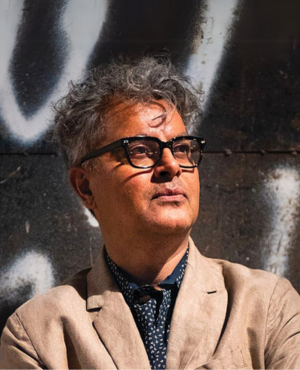
Advanced Weeklong Prose Workshop: How to be Authentic with Amitava Kumar
June 10–14, 9:00 to 11:30 AM MDT
Whether writing fiction or nonfiction, the writer is always striving for authenticity, a sense of the real on the page. (William Maxwell: "After forty years, what I came to care about most was not style, but the breath of life.") This workshop will look at brief examples of fiction (Arundhati Roy, Sheila Heti, Zadie Smith, Claire Messud, Denis Johnson, Lydia Davis), memoir (Maggie Nelson, Annie Ernaux, Joy Williams), travel writing (Ryszard Kapuscinski, Ian Jack), journalism (Janet Malcolm, Svetlana Alexievich), mixed-genre writing (John Berger, Claudia Rankine, Carolyn Forche) to learn how to create in our writing a certain effect of solidity or at other times dazzling impermanence or instability and even doubt. There is no one way to be authentic, there is no single, fixed notion of authenticity: instead, the richness of literature, regardless of genre, is the ability to use language to portray the richness of life itself. Each workshop meeting will be devoted to 10-minute writing exercises, an hour of discussion about the readings for the day (10-15 pages), and the rest of the time to a close reading of any one workshop-participant's work. Open to nonfiction and fiction writers, accepted participants will submit up to 15 pages by May 13, and will have the opportunity to meet one-on-one with Amitava during the week of class.
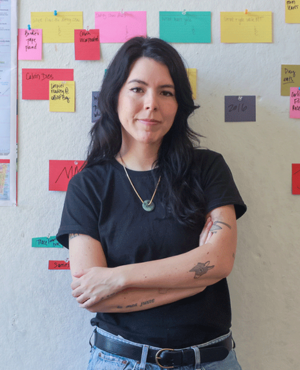
Advanced Weeklong Nonfiction Workshop: The Self, The Selves with T Kira Māhealani Madden
June 10–14, 9:00 to 11:30 AM MDT
Our lived experiences, and our memories, are rarely understood through a tidy, "traditional" chronology. They seldom mirror a Western "hero’s journey;" and they shouldn’t have to. In this generative workshop, we'll investigate speculative structures, parallel realities, hypothetical What If’s? and honor every Self as Narrator in order to come closer to the story. We'll focus on compression, syntax, and identifying narrative heat and emotional potency in our memories, our selves, and all the selves we’ve been, discussing strategies one uses to render characters inspired by real people, and the compromises and thrills that come with that responsibility. Writers should be prepared to experiment, play, share, and offer first impression oral feedback. Writers will leave with new work every day. Accepted participants have the opportunity to meet one-on-one with T Kira during the week of class.
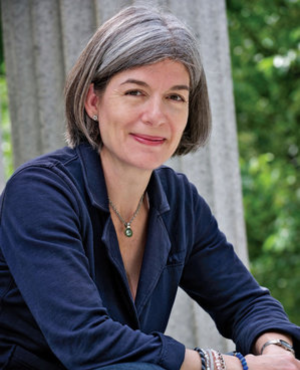
Advanced Weeklong Fiction Workshop: Truth in Fiction with Claire Messud
June 10–14, 9:00 to 11:30 AM MDT
When listening to music, we can hear a false note. So, too, when reading a work of fiction, we can feel it. In this workshop, we'll consider our manuscripts through the lens of 'fictional truth' (not the same as literal truth), asking how we might more closely approach it in our work. Accepted participants will submit up to 15 manuscript pages by May 13, and will have the opportunity to meet one-on-one with Claire during the week of class. Any additional external readings will be provided.
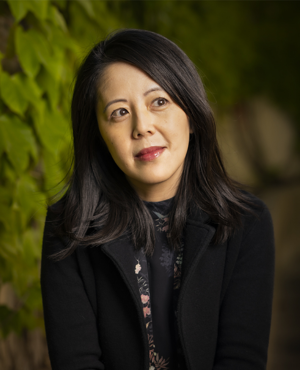
Advanced Weeklong Nonfiction Workshop: Nonfiction Think Tank with Beth Nguyen
June 10–14, 9:00 to 11:30 AM MDT
This nontraditional workshop serves as a kind of supportive think tank for writers of memoir, memoir-in-essays, essay collections, or any other form of nonfiction. We’ll explore everything from the writing process to key elements like structure, character, and perspective, and then delve into ethical concerns (how do we write about other people? What should we or shouldn’t we write?). Our mission will be to clarify our stories and emerge with a greater sense of focus, forward progress, and inspiration as we get back to them. Writing nonfiction creates its own particular concerns and tensions, and this workshop’s mission is to address those together so that we can also reap nonfiction’s many rewards. Accepted participants will submit up to 15 pages by May 13 and will have the opportunity to meet with Beth one-on-one during the week of class. During workshop, emphasis will be placed on verbal feedback and group discussion, and written feedback among participants will be optional.
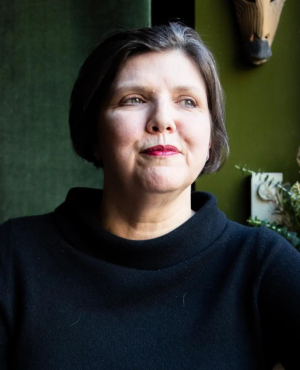
Advanced Weeklong Fiction Workshop: How to Pay Attention with Jenny Offill
June 10–14, 9:00 to 11:30 AM MDT
In this workshop, we'll explore the clarification and magnification of what Virginia Woolf once called "moments of being." We'll focus on the small, the habitual, the overlooked, and discuss how we as writers might transform these seemingly modest things with the force of our attention. Each class will feature discussion of an assigned short story followed by a student workshop. We'll discuss why a specific (and at times mysterious-seeming) choice has been made by a writer as well as expand our conversations to include larger philosophical questions prompted by these explorations of craft. Topics for discussion will include the science of attention, the uses of ritual and repetition, "the discipline of rightness" (as Wallace Stevens once described it), and emotional vs. literal autobiography. Accepted participants will submit up to 15 pages by May 13, and will have the opportunity to meet one-on-one with Jenny during the week of class.
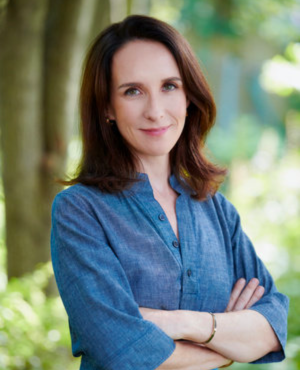
Advanced Weekend Nonfiction Intensive: Writing the Messy Past with Meghan O'Rourke
June 8–9, 8:30 AM to 12:00 PM MDT
How do we write about subjects about which we have mixed feelings—which is to say, how do we write about the majority of our past? How, especially, do we write about the aftermath of violence, or breakups, or other sudden ruptures that enact a kind of break in the self, a person before and a person after, who must somehow be unified on the page? Of course, in a sense, this question applies to all personal writing, since this involves dramatizing a past self we often still have shifting feelings about, and figuring out how to differentiate that past self as a character from the present day author self. Add to the mix memory's unreliability and it can feel especially daunting to tackle the material that most draws us to it—the material that haunts and troubles us, the material we have not resolved our feelings about. In this generative workshop we’ll read excerpts from memoirs and "nonfiction novels" that attempt to get at messy truths about the writer's past, and do so by using the techniques of fiction as well as meta-narrative techniques of breaking the fourth wall and addressing the reader. We’ll look at work by Annie Ernaux, Edouard Louis, James Baldwin, Leslie Jamison, Teju Cole, and more.
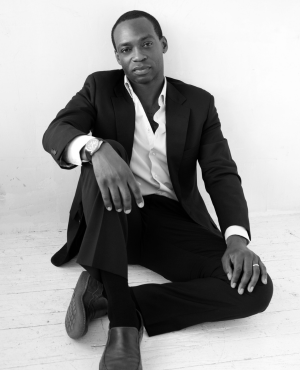
Advanced Weeklong Poetry Workshop: From Great Pain, A Formal Feeling with Rowan Ricardo Phillips
June 10–14, 9:00 to 11:30 AM MDT
This workshop will focus primarily on poetic form. We'll explore not merely what these particular forms are but why, how and the often underdeveloped sense of when you may think to use them. This will involve our studying, in brief, the history of these forms, their strict and loose interpretations, and how your formal poems can thrive in the present instead of seeming beholden to, and sounding like they were written, in the past. This workshop is designed for advanced poets, regardless of past experience with formal poetry. Accepted participants will submit one poem by May 13, and will be expected to write a new poem in a new form for every workshop meeting. Participants will have the opportunity to meet one-on-one with Rowan during the week of class.
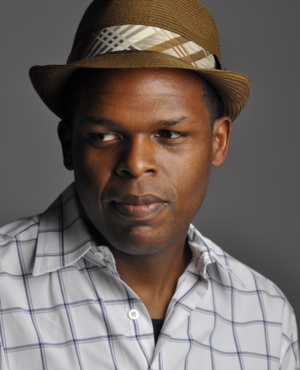
Advanced Weeklong Fiction Workshop: Fiction Worth Writing with Maurice Carlos Ruffin
June 10–14, 9:00 to 11:30 AM MDT
Once we accept that perhaps we might get a book published, the pressure is on to spin a story that absorbs readers so fully, they miss their subway stop. How do we write stories that keep people turning pages and feel true to our artistic vision? In this generative workshop, we’ll use these questions to dig deeply into the elements of fiction, helping us recast our work in effective, organic ways. We’ll also focus on bringing joy back into the work and the writing, the best-known cure for writer’s block. Accepted participants will have the opportunity to meet one-on-one with Maurice during the week of class.

How To Apply
Applications open January 2, and the priority deadline to apply is March 9, after which interested writers can apply for a possible waitlisted spot. Should spots open up, we'll accept qualified applicants on a rolling basis, first-come, first-served, beginning in mid-April. Please submit your best work, which does not have to be what you plan to submit for the workshop. If the workshop accepts multiple genres (e.g. Amitava Kumar), please submit your strongest work in any genre, using the appropriate genre-specific form. You'll have the opportunity to choose your first-, second-, and third-choice workshop within each form. We cannot guarantee that everyone will be placed with their first choice. If you'd like to attend multiple workshops, please submit an application for EACH workshop you'd like to attend.
